#Tristram Coffin
Text
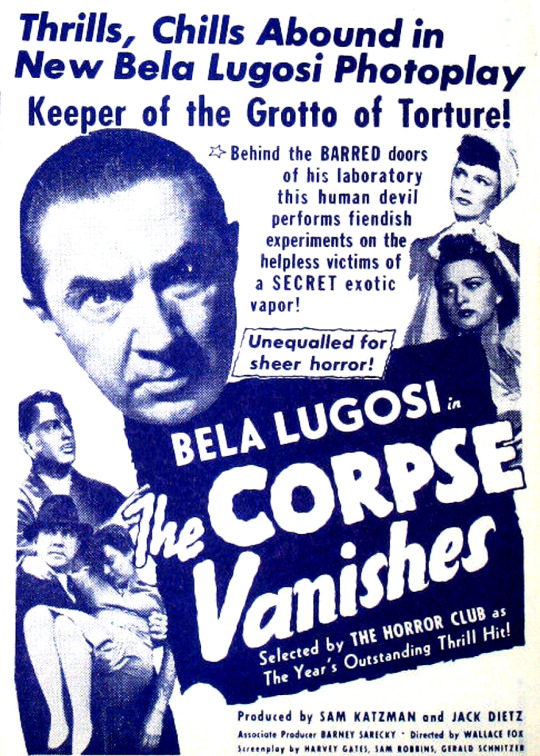
The Corpse Vanishes (1942)
#the corpse vanishes#bela lugosi#luana walters#tristram coffin#1942#1940s movies#wallace fox#horror#vintage movie ads
51 notes
·
View notes
Photo
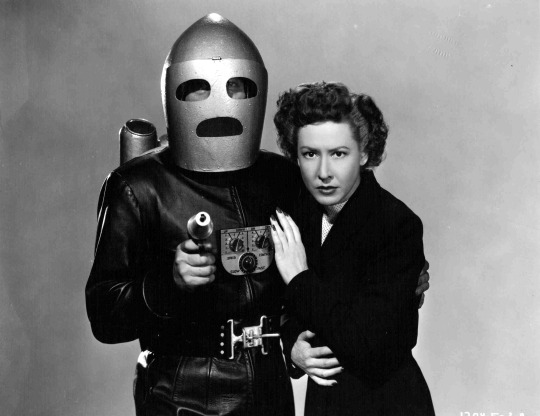
Publicity Photograph
King of the Rocket Men (1949)
Republic Pictures
Tristram Coffin as Jeff King (of the Rocket Men)
Mae Clarke as Glenda Thomas
52 notes
·
View notes
Text
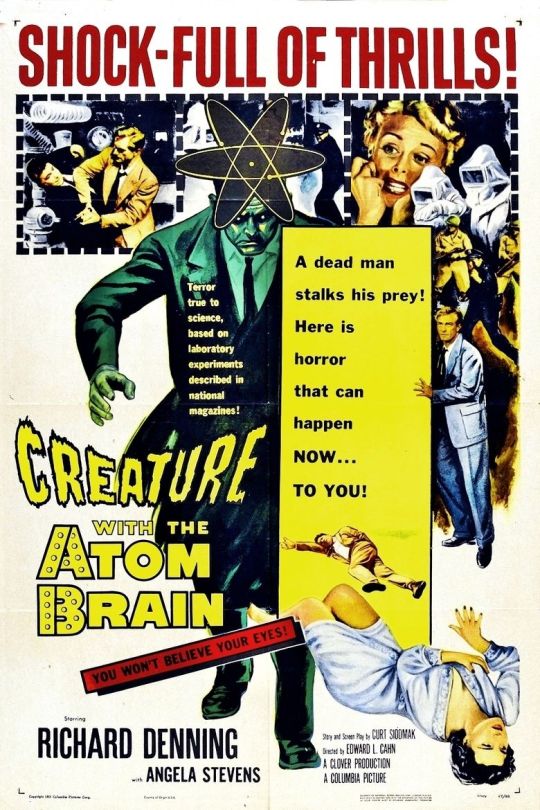
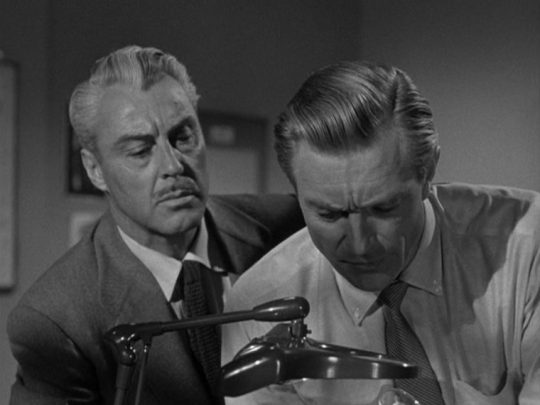
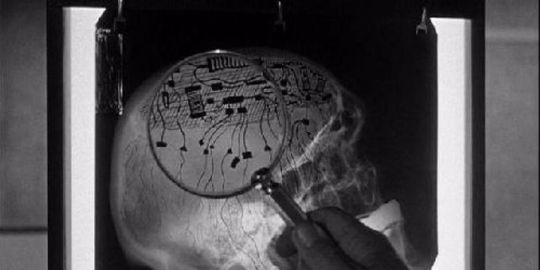

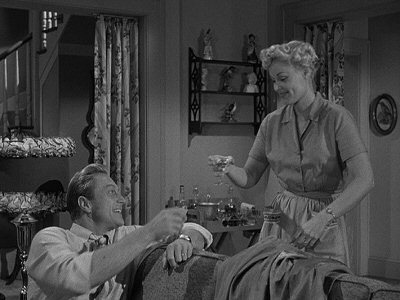




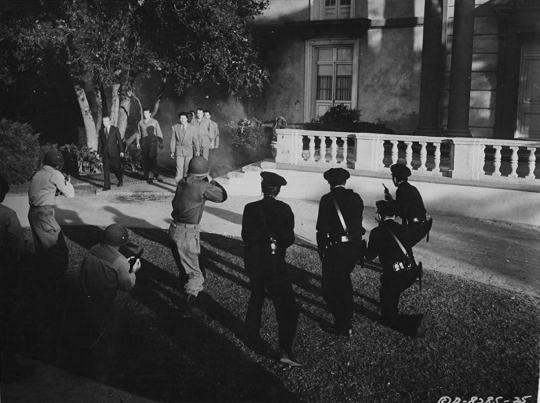
Creature with the Atom Brain (1955)
"Can't you keep him going any longer?"
"No, I can't keep them breathing longer than a few days, then the glands deteriorate. They just disintegrate."
"Is he dead?"
"He never was alive."
#creature with the atom brain#b movie#american cinema#creature feature#sam katzman#edward l. cahn#curt siodmak#richard denning#angela stevens#s. john launer#michael granger#gregory gaye#linda bennett#tristram coffin#charles evans#pierre watkin#lane chandler#george bruggeman#harry lauter#larry j. blake#noir informed creature feature from the halcyon days of atom age terror; full of very questionable science and technobabble about the#reanimation of matter. works best in the first half‚ as a sci fi tinged murder mystery caper. once it all goes a little apocalyptic things#start to fall apart (the finále is disappointingly staged in such chaos that the showdown between the military and the radioactive zombie#men feels more like a half hearted brawl at a local sporting event). Siodmak provides a typically sharp script with a nice line in#office banter between the police doctor lead and his best cop pal; also typical for Siodmak‚ there's a vein of casual sexism that runs#throughout‚ with Doctor Cop repeatedly reminding his wife that his work is no business of hers‚ and anyway‚ hasn't she made his dinner yet?#the actual horror is pretty well staged in shadow and cutaway; there's a back breaking in the opening scene which is all the more horrific#for being done entirely in silhouette. it all gets a bit silly once the dead gus start causing plane crashes (how??) and Cahn has a habit#of recycling shots not just from other films‚ but from this actual film‚ within the same film. reaction shots of the dead advancing are#used repeatedly in a number of scenes. not an un fun experience‚ but there are better atom age horrors out there
6 notes
·
View notes
Text
26 marzo … ricordiamo …
26 marzo … ricordiamo …
#semprevivineiricordi #nomidaricordare #personaggiimportanti #perfettamentechic
2023: Ivano Marescotti è stato un attore, regista teatrale e drammaturgo italiano. Dopo il diploma lavora per dieci anni all’ufficio urbanistica del comune di Ravenna. Progetta di iscriversi all’università, poi nel 1981 prende la decisione definitiva: si licenzia ed intraprende l’attività teatrale. L’esordio al cinema è datato 1989, con una piccola parte nel film La cintura. Nello stesso anno…
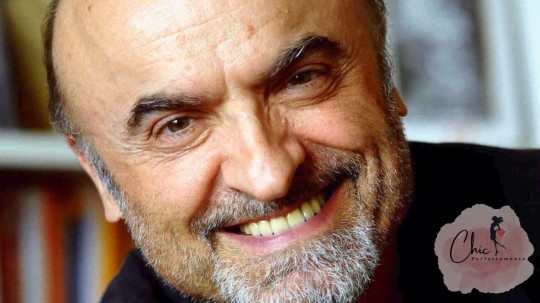
View On WordPress
#26 marzo#Erminio Macario#Fabrizio Frizzi#Gianni Cavina#Halston#Henriette Rosine Bernard#Herbert Arthur Chamberlayne Blyth#Ian Keith#Ivano Marescotti#Jan Sterling#Jane Sterling Adriance#Keith Ross#La voix d&039;or#Ludwig van Beethoven#Macario#Maurice Barrymore#Nino Vingelli#Ricordando ..#Ricordi#Ricordiamo#Roy Halston Frowick#Salvatore Vingelli#Sarah Bernhardt#Tris Coffin#Tristram Coffin#Tristrom Coffin#Walter Abel
0 notes
Text
Arthurian characters based on how likely I think it is that they can read
Can definitely read
The Lady of the Lake: taught Lancelot to read, also exchanged letters with Guenevere
Guenevere: see above, also exchanged letters with Isolde
Lancelot: taught to read by the lady of the lake, learned his own name by reading it off his gravestone, read the inscription on Galehaut's coffin which sent him into a dissociative murder rampage. Possibly the best-documented reader in the Arthurian canon
Isolde: exchanged letters with Guenevere
Tristram: exchanged letters with Lancelot
Definitely cannot read
Gawain, Yvain, Galegantin, Galecsconde, Tors, Carados, Yvain (the bastard), Gosenain, the Gay Gallant, Aglin: had to find a monk to read the creepy gravestones at the Dolorous Guard to them
I would be astonished if they couldn't read
Morgan Le Fey: surely that nunnery taught reading and writing in addition to necromancy right
Your average monk/hermit: gotta be able to read the Bible to do services for random passing knights
Galahad: an autistic Bible nerd raised by nuns. No fucking way that boy can't read
Most damsels: there seems to be a robust letter-writing tradition among ladies, especially queens, and damsels are often message-carriers. Perhaps not all of them can read, but I would guess the average one can
Strongly doubt that they can read
Arthur: I do not believe that Arthur can read. He did not clock the "He Who Pulleth Out This Sword" note, which I suppose there is an argument that he is dumb and just missed it, but can't read is simpler. And he does not strike me as the type to develop late-in-life literary ambitions, when you could just kidnap a bunch of scholars instead
Perceval: the idea of Perceval reading is wild to me, like a parrot who has somehow managed a note-perfect rendition of Bohemian Rhapsody. Not completely outside the constraints of physical possibility, but the effort involved would be so astronomical and what anyone would be getting out of it would be negligible. Just let him fly free in the woods.
Most knights. If those ten knights above are any indication, reading is not a prized or necessary knight skill. I would not be shocked to learn that a certain individual can read, but my baseline assumption would be no
#this post brought to you by my power is out and I am regretting getting out of bed#arthuriana#illiterate knights and the damsels and monks who read to them
342 notes
·
View notes
Text
“Let me tell you...” Hamilton to Laurens, 16Sept1780
History of this letter: it is currently with the Massachusetts Historical Society. It may have once been in the possession of Tristram Coffin (I do not know how he came to be in possession of letters to John Laurens; see my prior post on how the 30June1780 letter came to be in possession of the Hamilton family) and perhaps donated to them. The MHS may have more details about how they came to acquire this letter.
I do not know when this letter first makes an appearance in Hamilton biographies. We can be fairly certain that the Hamilton family was not in possession of this letter through the 19th century: John Church Hamilton noted (1840) that the only letter he had received in response to an inquiry was the April1779 letter from his father to Laurens, and by publication of his History of the Republic vol 2 (late 1850s-early 1860s) they had the Aug1782 letter from Laurens to Hamilton. This letter also does not appear in Henry Cabot Lodge’s Alexander Hamilton (1882) nor can I find it in his Works of Alexander Hamilton (1904-1910) or Allan McLane Hamilton’s The Intimate Life (1910), both of whom had access to the Hamilton family papers. Notably, the missing 12Sept1780 letter from Laurens to Hamilton also does not appear in any of these volumes, suggesting that it was lost well before the earliest biographies of AH supported by his family. Before any nefarious conclusion is drawn, I’ll state that an enormous number of letters are missing, including at least 30 letters to Elizabeth Schuyler/Hamilton between 1780 and 1781, and she would have been most likely to preserve her husband’s letters to her. We can also consider James McHenry’s comments on AH’s forgetfulness/carelessness with letters sent to him:
...recollecting that you are a little subject to lose [letters] by not putting them into your [pockets]...McHenry to AH, Oct1792
And that AH sometimes destroyed the letters he received:
I will willingly testify what you mention respecting Mr Cabot but having torn up your letter trusting to my memory...AH to Wolcott, 13Jun1795
It’s in some of the links below, so I’ll briefly state that AH marrying while still in military service is unusual, even rare, among his social circle. Almost everyone else waits until their military service or public duties are complete before marrying, even if it means that their courtships span years. But AH was also desperately unhappy in early 1780 - in a letter to Laurens (8Jan1780), he wrote:
I am chagrined and unhappy but I submit. In short Laurens I am disgusted with every thing in this world but yourself and very few more honest fellows and I have no other wish than as soon as possible to make a brilliant exit. ’Tis a weakness; but I feel I am not fit for this terrestreal Country.
About a month later, and after a few other recorded flirtations/romances of AH with other women during that period, Elizabeth Schuyler enters the picture (according to a letter from Kitty Livingston to Sarah Jay, ES arrived in Morristown in February 1780). By early April, their engagement is approved by her parents. Fast forward to Sept 1780, and only ten days before this letter to Laurens, AH wrote ES the following [6Sept1780]:
I was once determined to let my existence and American liberty end together. My Betsey has given me a motive to outlive my pride...
AH’s disgust with the operation of the army and repeated refusals to give him a rank and command commensurate with his abilities/experience continues, but now at least he has an alternative, the opportunity to make another life-plan. Indeed, around this time he is planning a 6+ month leave from the army following his wedding, which they were at this time anticipating for early November at the latest. Philip Schuyler is in and out of headquarters, likely contributing to the wedding talk, and McHenry also likely composes and send his wedding poem to AH at this time. In the above 6Sept1780 letter to ES is also where he composed these lines subsequently crossed out:
Do you know my sensations when I see the sweet characters from your hand? Yes you do, by comparing [them] with your [own] for my Betsey [loves] me and is [acquainted] with all the joys of fondness. [Would] you [exchange] them my dear for any other worthy blessings? Is there any thing you would put in competition[,] with one glowing [kiss] of [unreadable], anticipate the delights we [unreadable] in the unrestrained intercourses of wedded love, and bet your heart joins mine in [fervent] [wishes] to heaven that [all obstacles] and [interruptions] May [be] speedily [removed].
So this is what we have of AH’s headspace re ES around this time: romantic, quite lustful, eager to be married to her.
Before my analysis, I encourage comparison to the content, tone and language in AH’s letter to Laurens of 12Sept1780. Especially towards the end of that letter, AH is notably direct about his feelings and emotions, even confessional. This is the emotionally honest AH, complaining about the conditions of the army.
Yet AH wrote Laurens again only four days later, having received a letter that he must have felt he needed to promptly respond to: “I wrote you fully by the post and have just time to tell you that I have received your letter of the 8th.” In this 16Sept1780 letter, AH is friendly, but the confessional aspect is missing. Whatever was in that 8Sept1780 letter has upset him a bit, which we will see below. Breaking it down:
I wrote you fully by the post and have just time to tell you that I have received your letter of the 8th.1 & that tomorrow morning I set out with the General for Hartford to an interview with the French General and Admiral.2 My hopes increase, that Guichen is coming to enable us to act.3 For your own sake, for my sake, for the public sake, I shall pray for the success of the attempt4 you mention; that you may have it in your power to act with us. But if you should be disappointed, bear it like a man; and have recourse, neither to the dagger, nor to the poisoned bowl, nor to the rope.
AH is urging Laurens to not attempt an honorable death, and in poetic terms. If suicide was AH’s serious concern, I doubt he would phrase it so cutely: “the poisoned bowl.” I also don’t think the rest of the letter would continue in the tone or with the content it does, with the frequent references to AH’s fiancee and his wedding.
That you can speak only of your private affairs shall be no excuse for your not writing frequently. Remember that you write to your friends, and that friends have the same interests, pains, pleasures, sympathies; and that all men love egotism.
AH is reminding Laurens to write - to his friends - which I do not think he’d spend time doing if he were seriously concerned Laurens was suicidal.
In spite of Schuylers black eyes, I have still a part for the public and another for my friends [above insert] you; so your impatience to have me married is misplaced; - a strange cure by the way, as if after matrimony I was to be less devoted than I am now.
This is the first (and only) letter where AH refers to Laurens’ impatience to see him married. Within the context of what was going on in early September - McHenry sending the poem to AH about his wedding, AH discussing his planned leave, AH expressing elsewhere that marriage and military service should not mix - also see this post also linked below on “Empire of Hymen” - I suspect talk about AH’s upcoming wedding - which they had at this time planned for late October/early November - had reached Laurens.
We can only guess that there was a “hurry up and get married so you cease to be preoccupied with your wedding to her and can focus on Army/public goals” notion in the missing 8Sept1780 letter, perhaps also in response to AH’s 12Sept1780 letter where he was clearly openly expressing his troubles. Perhaps Laurens felt once AH was married to ES, his frustration would lessen, although we cannot be sure. In this conjecture, I am informed by both Laurens’ and the Marquis de Lafayette’s examples of husbands who certainly placed military duty over matrimony. But does AH share this belief? AH expressed the following sentiments to ES (20Jul1780): “I hope for a decisive campaign. No one will desire it more than me; for a military life is now grown insupportable to me because it keeps me from all my soul holds dear.”
Next phrase:
a strange cure by the way, as if after matrimony I was to be less devoted [missing prepositional phrase] than I am now.
Notice the “as if” - as in, it’s really bizarre that this would be suggested. Based on the sentence structure, there are three things that could be the object of this phrase:
1. “a strange cure by the way, as if after matrimony I was to be less devoted to the public than I am now.” We already know he intends to be less devoted to the public - this is repeated by him in letters often enough during this time and the next two years.
2. “a strange cure by the way, as if after matrimony I was to be less devoted to you than I am now.” Getting married will naturally reflect less devotion to Laurens, so it’s hardly a strange cure. It would be a very obvious (attempt at) a cure, nothing “strange” about it. Further, I don’t see evidence that AH showed much devotion to Laurens post-ES’s entrance into AH’s life. I think the strongest reason for this interpretation is that “you” [Laurens] is the last in the list.
But there’s also another problem with this interpretation - AH wrote “In spite of Schuylers black eyes, I have still a part for the public and another for my friends [above insert] you; so your impatience...” The “you” is edited in by AH (we assume). AH probably initially wrote that sentence as follows:
In spite of Schuylers black eyes, I have still a part for the public and another for my friends; so your impatience to have me married is misplaced; - a strange cure by the way, as if after matrimony I was to be less devoted than I am now.
I don’t think it’s likely he was arguing that matrimony would be a strange cure to devotion to his friends, either. (AH will plead in letters to his friends dated from 1781 and 1782 that either his matrimonial occupations or family matters or his studies to support his family have delayed his writing to them.) But the [you] as an insert above the sentence makes the argument that he was referring to Laurens specifically even more doubtful when he wrote the full sentence.
3. “a strange cure by the way, as if after matrimony I was to be less devoted to her than I am now.” Unusual sentence structure apparent, “to her” is the only logical reading of this phrase. The usual promise of matrimony is to be devoted to one’s spouse - it’s a “strange cure” to suggest that matrimony would make one less devoted. Marrying ES certainly would be a “strange cure” to devotion to her. AH is writing that he still has a part for the public and for friends Laurens so there’s no reason to be impatient about his wedding, but getting married will be no cure for a devotion to ES. About a year later, AH writes to EH that he’s not even factoring in the public anymore and intends to “[devote] myself wholly to you.”
I have noticed how often the very next line is skipped in books although it’s a context clue for the prior sentence. But it starts “Let me tell you,” i.e., make special note of this; let me make this clear to you; this is important:
Let me tell you, that I intend to restore the empire of Hymen and that Cupid is to be his prime Minister.
AH is expressing the type of marriage that he plans to have - one of strong romantic/erotic attachment within the “sacred ties” of matrimony that Hymen binds. He is telling Laurens to take note that his marriage will fit within the ideals of the companionate marriage: AH intends to restore the land of the god of marriage (Hymen), where the god of love/romance (Cupid) will lead. Hymen and Cupid were common images of an ideal companionate marriage - Hymen joins the partners in sacred bands; Cupid ensures their romantic/erotic attachment to each other. People had jewelry (wedding bracelet ca NYC 1785), medallions, even performances with persons costumed as Cupid and Hymen as part of their wedding celebrations. The chaste, morally scrupulous John Adams used the phrase “Cupid by Hymen was crown’d” to express this ideal of marriage and romantic love joined. Humorous and somewhat bawdy poems were written expressing fear that Cupid and Hymen would not be attendants to one’s marriage (leading to an indifferent sex life), or Cupid kindling the torch of Hymen (ensuring love and romance within marriage).
Laurens would have gotten the reference right away. Once one understands the Cupid and Hymen reference, it’s even more obvious that the object of devotion in the prior sentence is ES.
AH is also making clear - let me tell you - that his marriage is not a cynical endeavor just so he can rise in station through a family connection, but one that he intends to fit to the ideal marriage. In the next several lines, AH continues to present Laurens with images of his own attachment and partnership with ES. [An aside: “Cupid and Hymen” was also the title of a published 1775 fable by Thomas Paine or Philip Freneau (authorship unclear) that was an attempt at allegory to the British and its colonies.]
I wish you were at liberty to transgress the bounds of Pensylvania.
One could think this is a bawdy reference, and for awhile I thought AH meant it in a “violation of religious obligations” sense (since he is using other religious terms in this and other letters to Laurens), but considering AH’s other usages of the word “transgress,” I think he simply meant to do something illegal - violate parole.
I would invite you after the fall to Albany to be witness to the final consummation.
I think there’s some wordplay in “after the fall”, referencing religious terminology - echoing the fall of man because of a woman - that reflects phrases he’s used in letters to Laurens re ES before, “my doom,” “guilty,” “confess my sins.” AH is trying to get some wordplay about the time of year and his “fall” into this relationship with ES that also makes him unworthy to be a soldier (or weak, as McHenry described it). The sentiment is similar to one who uses about a month later in a letter to ES:
I would not have you imagine Miss that I write to you so often either to gratify your wishes or to please your vanity; but merely to indulge myself and to comply with that restless propensity of my mind, which will not allow me to be happy when I am not doing something in which you are concerned. This may seem a very idle disposition in a philosopher and a soldier; but I can plead illustrious examples in my justification. Achilles had liked to have sacrificed Greece and his glory to his passion for a female captive; and Anthony lost the world for a woman. AH to ES, 13Oct1780
I have written about final consummation a lot, as it has specific meaning that is not “sexual consummation.” To summarize, the meaning of this sentence, using the final consummation metaphor, is “I would invite you after the fall [of man because of a woman] to Albany to witness [the end of the world/the consummation of all things in Christ].” AH is drawing a sharp line between his life pre- and post-nuptials - emphasizing how it will be forever changed in a manner comparable to major religious events in the Christian tradition - actually comparing it to the culminating event of unity between God and the world in Christian belief. He’s also taking the opportunity to reference his wedding and invite Laurens to witness this change, possibly in case he has any doubts about AH’s sincerity for his life-changing marriage.
My Mistress is a good girl, and already loves you because I have told her you are a clever fellow and my friend; but mind, she loves you a l’americaine not a la françoise.
AH states that ES is a good partner for him and lets Laurens know that he has already disclosed his friendship with Laurens to ES (he refers to Laurens as “My Laurens” in an earlier letter to her); and he’s bragging here about how much influence he has over ES (she loves you because I’ve told her you are clever and you are my friend) and showing their unity in these matters. AH is also letting Laurens know that her love for the latter is not romantic/sexual. But with the Hymen/Cupid use, the “consummation” reference, and the reference to “Schuyler’s black eyes” - noting something he finds attractive about her - AH could have just written “In spite of Miss Schuyler,...” - AH shows how much HE thinks about romantic/sexual engagement with ES (which we already know from his letters to her from this period, in addition to the reference about how sexually pleasing ES is to him in his 30June1780 letter to Laurens). AH was also jealous at the thought of another man watching her sleep in his own dream and wanted her sister to report on every flirtation. He had some pretty strict notions of chastity and fidelity for ES.
Adieu, be happy, and let friendship between us be more than a name
A Hamilton
The General & all the lads send you their love [skipping the post-script]
AH’s sign-off, if Laurens hadn’t already gotten the point throughout the entire letter, is also a pretty strong “Be happy, you’re my friend and let’s not be men who just call each other friends.” With all of its allusions to life-changing events, romantic/sexual love in marriage, and references to ES, this letter is providing Laurens with AH’s framework of his life moving forward. AH felt this was so important for Laurens to understand that he provided a response only four days after his prior letter, likely because he knows (or suspects - we are really missing a lot by missing the earlier letter) that Laurens has heard about AH’s planned lengthy leave, his thoughts (with Meade) about leaving the army entirely, and so on.
Given the timing of this letter, AH clearly thinks that two things are important to tell Laurens- 1) that his own marriage is not some cynical endeavor and it will take priority in his life; 2) that Laurens will continue to have a role to play as his friend.
However, AH is evading directly telling Laurens about his (now seriously wavering) commitment to continuing with the military duties he currently has, and public life (although this was perhaps in another letter, now lost). AH wants to get a command and then get out and go about the business of supporting a family with ES. All these references to his marriage and relationship with ES show where his focus is, while not outright revealing his career and life plans - take an extended leave, get married, study the law, try to get a command*, then leave the army - that he does in his letters to others. I speculate that he’s concerned that Laurens will be, at the least, disappointed in him, which is also reflected in all the dire language in this and the June letter to Laurens about guilt and doom, confessing his sins, the fall of man and the end of the world. His fear that Laurens will think less of him is very real; thus, all the emphasis on their friendship, while not confessing outright his plans to leave the army entirely if he doesn’t get his way. After about two years of disappointments, AH is enticingly close to the solution to many of his problems, both personal and professional, and analytically-driven as he was, has formulated a new life plan that puts him in a different sphere from Laurens.
There have been questions raised about why this letter isn’t quoted in every recent biography of AH to communicate something about his relationship with Laurens. My response is that once one understands the references, it’s not that interesting of a letter except for AH’s wordplay and use of mythological/religious allusions. The statements he makes here are consistent with the statements he makes in his letters to ES in 1780 and through the following year - there are numerous other examples of him writing emotionally about his marriage, his feelings for ES and his devotion to her, and how life-changing her entrance into his has been and the plan he hatches to get his way/get out of the army. Flexner quotes this letter, but also includes an insert: “a strange cure by the way, as if after matrimony I was to be less devoted [to her] than I am now.” There are others that cut off the quote before “Let me tell you,” I suspect because the author doesn’t know the allusion.
Back to the beginning of this letter, considering how AH goes on to Laurens with references to his wedding and feelings for ES, it’s difficult to believe he really thought Laurens was suicidal - the expression seems more poetic than anything.
Links to prior posts, some already linked above:
AH on marriage Part 1, Part 2, engagement timeline, Part 3, Part 4, more about AH, McHenry, and Pope, AH telling JL about his engagement and the timeline, some more about AH/Laurens and public service , AH’s views that marriage and military service should not mix that links most of the other posts too.
*AH’s desire to have proved himself in combat remains, likely because he sees that his influence in his future career will be embellished by having been a war hero. Here are some references:
Sometime last fall when I spoke to your Excellency about going to the Southward, I explained to you candidly my feelings with respect to military reputation, and how much it was my object to act a conspicuous part in some enterprise that might perhaps raise my character as a soldier above mediocrity. AH to GW 22Nov1780
You know I shall hate to be nominally a soldier. AH to Greene, 19Apr1781
He would remain a hawk throughout his life.
5 notes
·
View notes
Text
RIP MAGGIE PETERSON-MANCUSO
1941-2022

Margaret Ann Peterson (aka Maggie Mancuso) was best known for playing Charlene Darling on “The Andy Griffith Show”, which was filmed on the Desilu backlot. In one episode she played opposite Howard McNear, who also played Mr. Crawford, Little Ricky’s music instructor on “I Love Lucy.” “The Andy Griffith Show” was actually a spin-off of “Make Room for Daddy” aka “The Danny Thomas Show”.
She also played the character of Doris in the final episode filmed "A Girl for Goober" in 1968, the same year Lucille Ball sold Desilu Studios to Paramount.
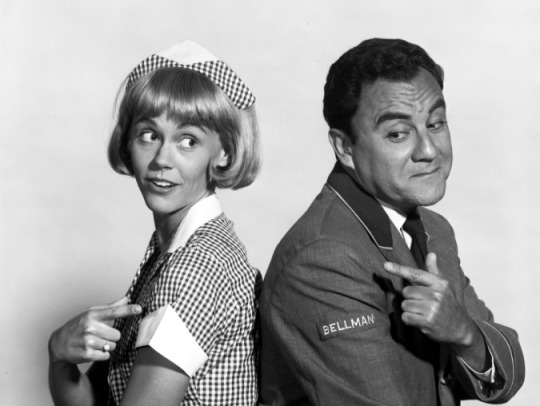
While at Desilu, concurrently with her appearances on “The Andy Griffith Show”, she was hired to play Susie the Waitress on another Desilu-filmed series, “The Bill Dana Show”, yet another spin-off of “The Danny Thomas Show.” In 1958, “The Danny Thomas Show” did a cross-over episode with “The Lucy-Desi Comedy Hour” and vice-versa. In her eight episodes as Susie (all in 1964), Peterson co-starred with such “Lucy” favorites as Charles Lane (Mr. Barnsdahl on “The Lucy Show”), Sandra Gould (Nancy Johnson in “Oil Wells”), and Tristram Coffin (Harry Munson on “I Love Lucy”).

Staying in the Desilu / Mayberry family, Peterson also did a 1965 episode of “Gomer Pyle: USMC”, filmed on the Desilu backlot. She played a blind date for Gomer on the episode “The Blind Date”.

In 1966, “The Lucy Show” did a cross-over episode with “Gomer Pyle: USMC” that featured Jim Nabors as Gomer Pyle and Lucille Ball as Lucy Carmichael (aka Lou C. Carmichael).
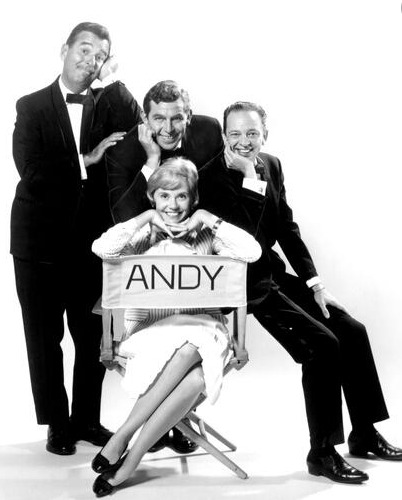
In 1967 she joined Andy Griffith, Don Knotts, Tennessee Ernie Ford, and The Back Porch Majority on the music special “The Andy Griffith Uptown-Downtown Show” playing herself.

Now considered one of the Mayberry favorites, Peterson also appeared on “Mayberry RFD” in 1970. She played Edna, who was sweet on Sam (Ken Berry). Berry was ‘discovered’ by Lucille Ball, and also appeared on “The Lucy Show” in 1968.

In 1986 Peterson was invited to reprise her role as Charlene Darling in “Return To Mayberry”. She was re-united with many of her co-stars, including The Dillards, the country band who played her family on “The Andy Griffith Show.”
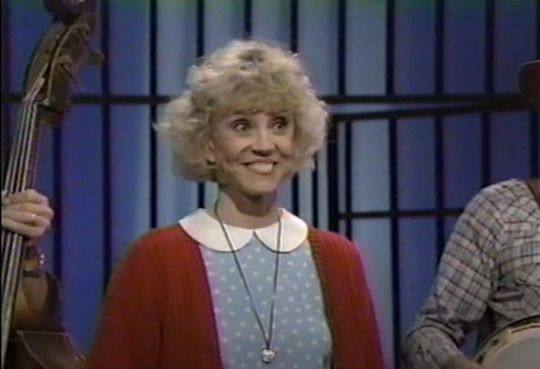
In 1996 she played Charlene one last time on “Nashville Now”, performing a song with The Dillards on a Mayberry Reunion Show.
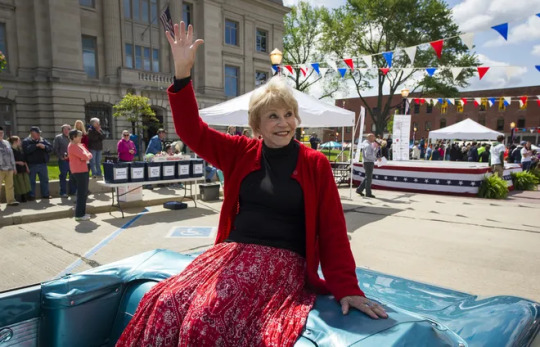
In 1978, she married Gus Mancuso, who died in 2021. Margaret’s health steadily declined and she died on May 15, 2022 at age 81.
#Maggie Peterson#Maggie Mancuso#The Andy Griffith Show#Andy Griffith#Desilu#Charlene Darling#Mayberry RFD#The Bill Dana Show#Mayberry#The Dillards#Gomer Pyle USMC#The Danny Thomas Show#TV
15 notes
·
View notes
Text

Alredered Remembers Robert P. Tristram Coffin, Maine poet and reporter, on his birthday.
With six small diamonds for his eyes
He walks upon the summer skies,
Drawing from his silken blouse
The lacework of his dwelling house.
Robert P. T. Coffin
0 notes
Text
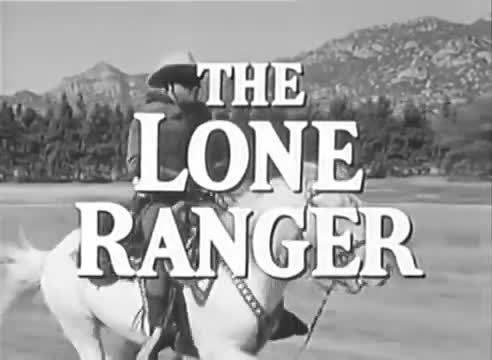
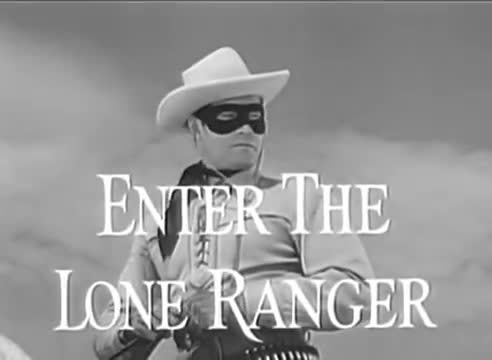
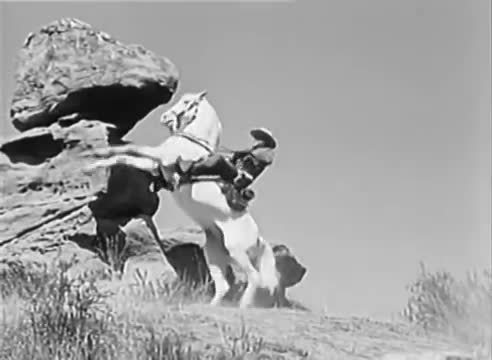
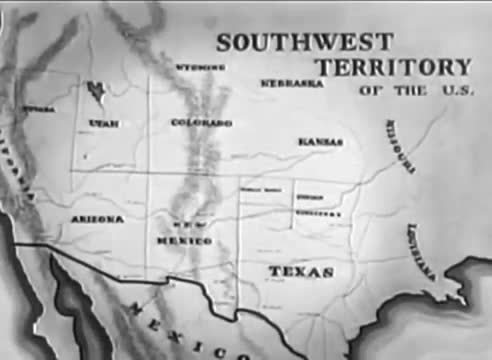
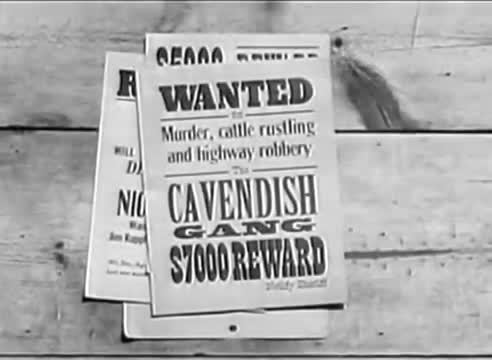
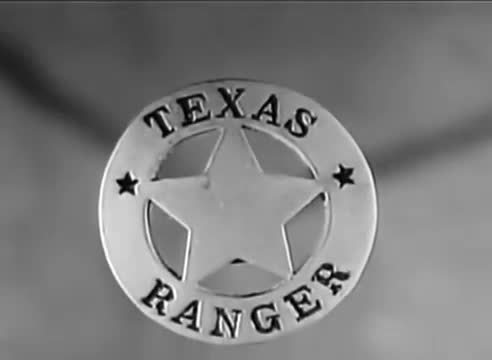
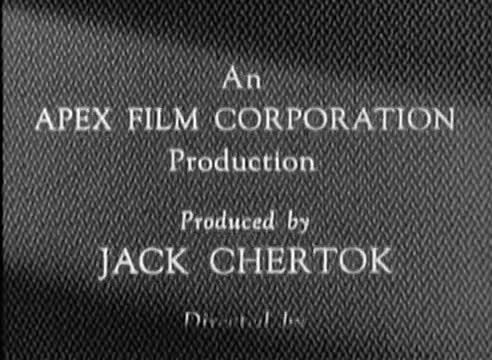
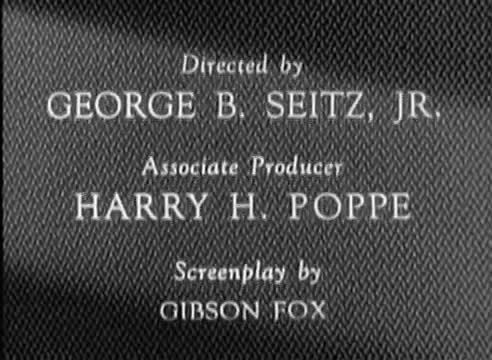
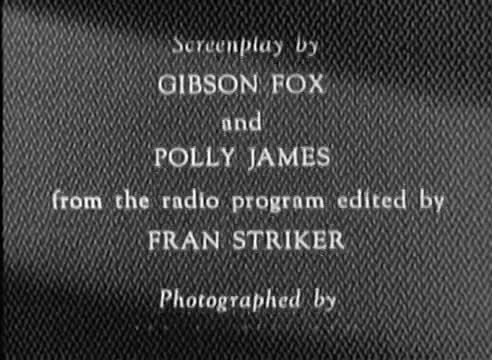
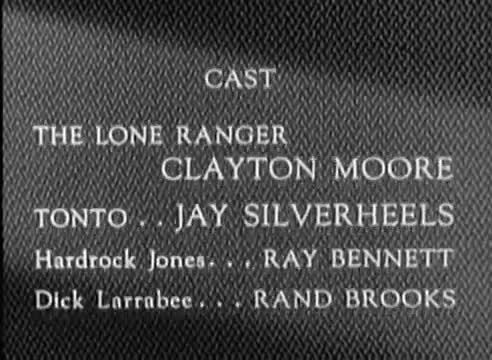
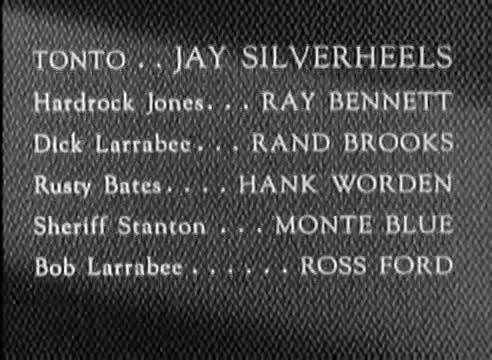
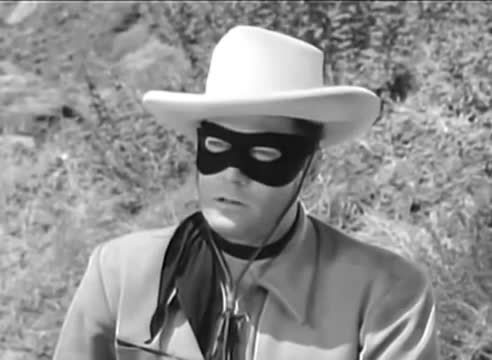
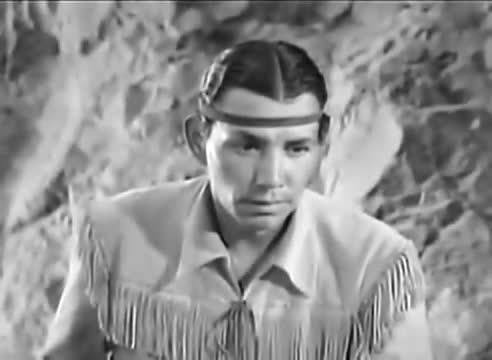
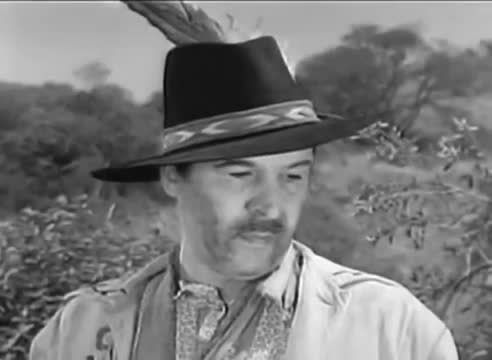
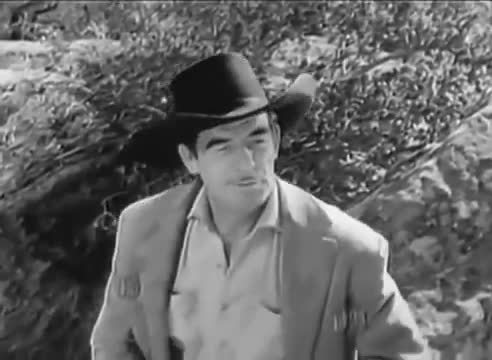
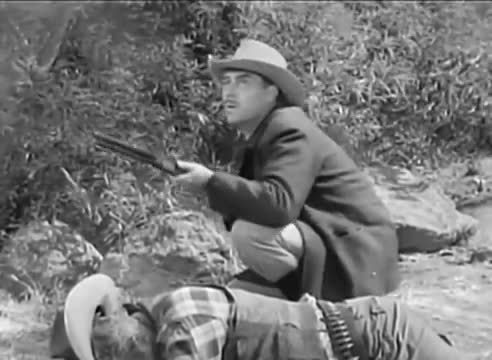

From the Golden Age of Television
Series Premiere
The Lone Ranger - Enter the Lone Ranger - ABC - September 15, 1949
Western
Running Time: 30 minutes
Produced by Jack Chertok
Directed by George B Seitz Jr.
Narrateed by Gerald Mohr
Stars:
Clayton Moore as the Lone Ranger (John Reid)
Jay Silverheels as Tonto
Glenn Strange as Butch Cavendish
George J. Lewis as Collins
Tristram Coffin as Ranger Captain Dan Reid (uncredited)
Frank Fenton as Ranger Captain (uncredited)
Jack Rube Clifford as Jerry
Ray Bennett as Hardrock Jones
Rand Brooks as Dick Larrabee
Hank Worden as Rusty Bates
Monte Blue as Sheriff Stanton
Ross Ford as Bob Larrabee
#Series Premiere#Enter the Lone Ranger#TV#The Lone Ranger#ABC#1949#Western#Clayton Moore#Jay Silverheels#Glenn Strange#George J. Lewis
1 note
·
View note
Text
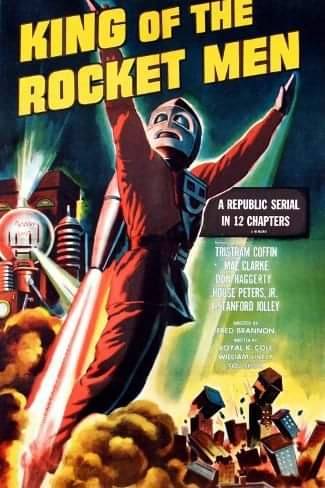
King of the Rocket Men es una serie de películas en blanco y negro de 12 capítulos de 1949de Republic Pictures , producida por Franklin Adreon , dirigida por Fred C. Brannon , protagonizada por Tristram Coffin , Mae Clarke , Don Haggerty , House Peters, Jr. , James Craven e I. Stanford Jolley .
Esta serie de películas se destaca por presentar al único personaje llamado "Rocket Man", un nombre inapropiado que los fanáticos aplicaron a los otros héroes propulsados por cohetes de la República que siguieron en sus series posteriores: Radar Men from the Moon (1952), Zombies of the Stratosphere (1952) y Commando Cody: Sky Marshal of the Universe (1953).
1 note
·
View note
Text
youtube
The Corpse Vanishes (1942) / Mystery horror film / Bela Lugosi, Luana Walters, Tristram Coffin
0 notes
Text
Uncharted 2 cast


Mary Jane Pajaron, Ronald Gebilaguin, Ferdinand Ladera, Derek Murillo, Allain D.People of color are more visible in games today than ever before.
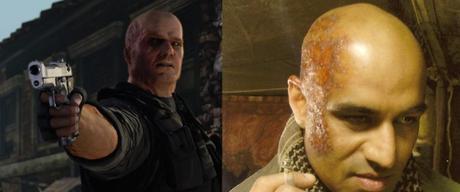

Marvin Allen Aure, Jefferson Estrabinio, Kerwin Atienza, Anthony David Calderon, Leonardo M. Wilson Pedro Jr., Dino Antonio Morales, Valroman Francisco, Franco Perez Sound Effects & Foley Editor Lead Dialogue Editor Re-Recording Mixer Supervising Sound Editor Technicolor Animation and Interactive ServicesĬinzia Angelini, Lindsey Butterworth, Emanuela Cozzi, Kent Culotta, Daniel Godinez, Bart Goldman, Jose Hernandez, Sung-hyun Kim, Mark Levine, Melissa Thompson, Mark Villagracia, Alex Zemke Guerilla Games, Media Molecule, Sony Santa Monica, Insomniac Games, Ready At Dawn Studios, Sucker Punch Productions, Bungie, Infinity Ward, Havok, Mitchell Silberberg & Knupp LLP, John Crompton (Crompton & Associates)Īlex Gaynor, Annie Wildmoser, Elisha Christian, Jesse Crusing, Kyle KlützĪaron Lambert, Alejandro Castro, Ian Lang, James Lipscomb, Josh LaBrot, Julian Palacios, Mahyar Sadri, Randy Wilson, Ryan Torrey Michael Caloz, Wesley Tobler, Sergiy Migdalskiy, Ricardo Ariza, Cory Hamilton, Victoria Fortson, Joshua Frontino, Boris Batkin, Mark Cerny, Andre Petrossian, Greta Anderson Melissa Barker, Esteban Cueto, Richard Dorton, Michael Mukatis, Justin Rasch, Chris Robbins, America Young Theo Balestra, Lola Balestra, Aidan Balestra, Nathan Levitt, Lauren Levitt Prasadananda Das, Toufiq Tulsiram, Tenzing Tsering Berger, Steven Jay Blum, Dimitriy Dyachenko, Robin Atkin Downes, Michael Gough, James Horan, Yuri Lowenthal, Fred TatascioreĪlex Demir, Serder Burhan Kalsin, Oscar Oden, Murat Uludagĭechen Choezom, Pema Dhondup, Yangchen Dolkar, Namgyal Kyulo, Tenzing Tsering Kimble, Tristram Coffin, Joshua Dodge, Brenden Quibin Rob Alonso, Ronald Avila, Anthony Bailey, Eddie Blandon, Byron Brackens, Andrew Cockburn, Adam Grodin, Matthew Hartwell, David Kabelitz, Michael Longley, Travis Madole, Lizz McCue, Alex Medina, Byron Mehlsack, Jeffrey Keith Negus, Rodney Reece, Matthew Rothstein, Trevor Stevens, Nick Murphy, Travis R. Marianne Hayden, Jason Martinsen, Jeremy Collins James Paick, Polina Hristova, Erwin Madrid, Kory Heinzenĭavid Lam, Moragot Bodharamik, Randall Davis (Lee) MikkelsenĬompany Mascot, Morale Builder and Food Patrol Borujeni, Shan-Min Chao, Andrew Cove, Cédric Lallain, Bryan McNett, Adam Johnson, Morten S. Manny Ko, Cort Stratton, Jason Scanlin, Mohammad S. Shaddy Safadi, Hong Ly, Andrew Kim, Brian Yam Omar Gatica, Thomas Wright, Eva Krzeminskiĭarcy Korch, Hanno Hagedorn, Bryan Wynia, Corey Johnson Lee, Simon Craghead, Reiko Satoīenson Russell, Junki Saita, Jonathan Stein, Justin Richmond, Kurt Margenau, Jacob Minkoff, Robert Cogburn, Anthony NewmanĬharlotte Francis, Malcolm Hee, Behrooz Roozbeh, Christian Nakata, Nichol Norman, Adam Marquis, Genesis Prado, Brian Beppu, Khanh D. Chen, David Baldwin, Stephen Ife, Michael Murrill, David Ballard, Edward J. Reuben Shah, Santiago Gutiérrez Cortés, Christophe Desse, John Germann, Henry Cheng, Dustin King, Jonny Q. Shamil Rasizade, Chris Ilvento, Brian Robison Pål-Kristian Engstad, Travis McIntosh, Dan LiebgoldĬhristopher Christensen, Jonathan Lanier, Carlos Gonzalez-Ochoa, Marshall Robin, Fengquan Wang, Charles Tangora, Christian Gyrling, John Bellomy, Jason Gregory, Lucas Pope, Ian Jones, Jeff Shaffer, Jérôme Durand, Sandeep Shekar, Vincent Marxen, John Hable 969 people (918 developers, 51 thanks) Naughty Dog

0 notes
Photo
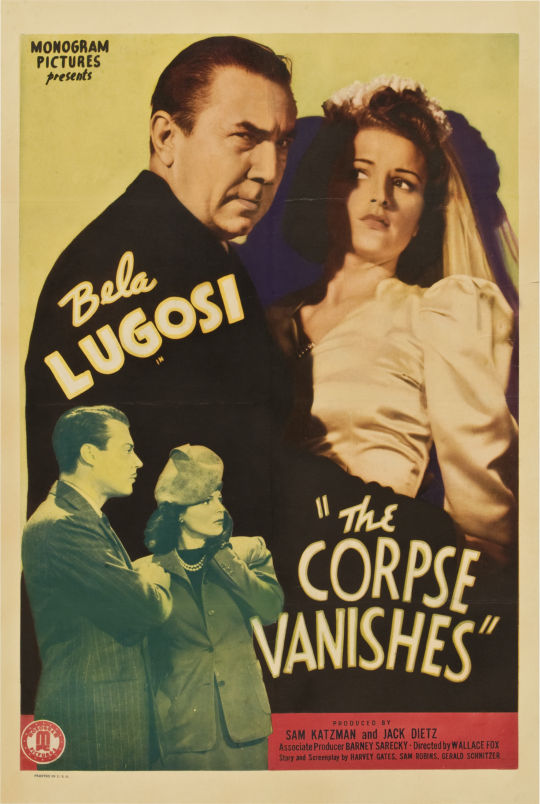
The Corpse Vanishes (1942)
Dir: Wallace Fox
Starring: Bela Lugosi, Luana Walters, and Tristram Coffin.
A scientist, aided by an old hag and her two sons, kills virginal brides, steals their bodies, and extracts gland fluid to keep his ancient wife alive and young.
1 note
·
View note
Text
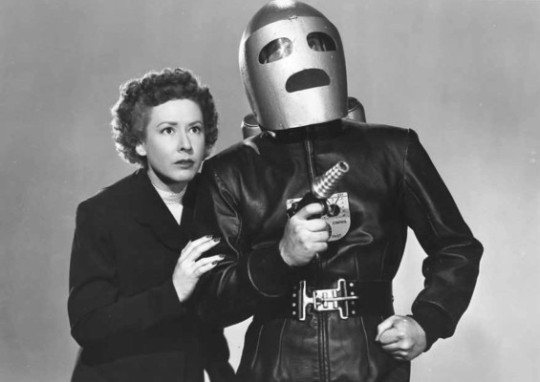
Mae Clarke-Tristram Coffin "King of the Rocket Men" 1949, de Fred C. Brannon.
49 notes
·
View notes
Text
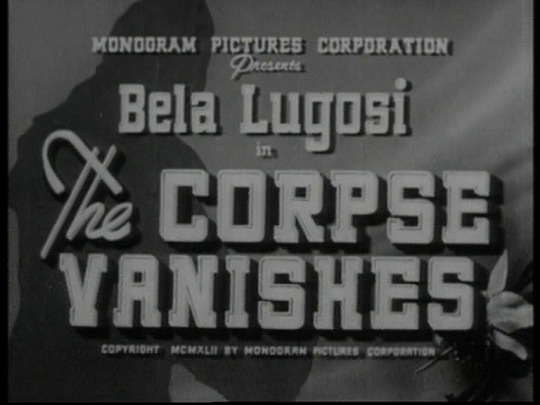
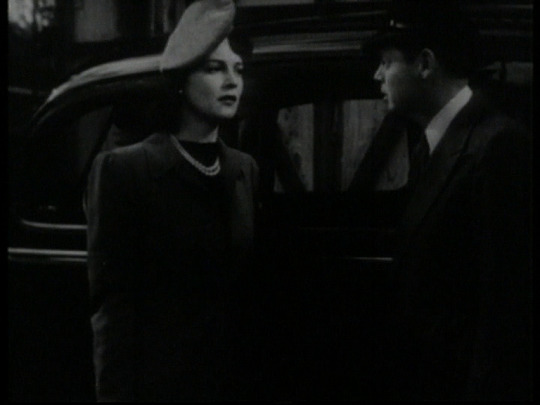
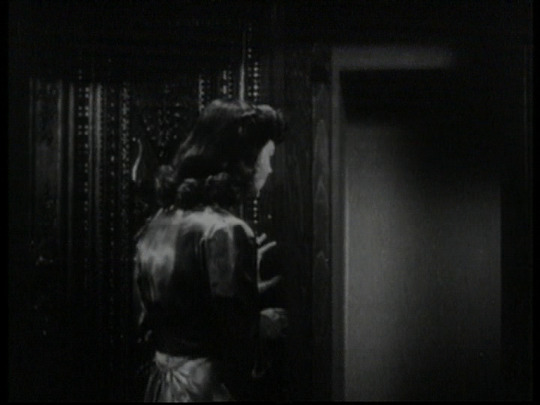
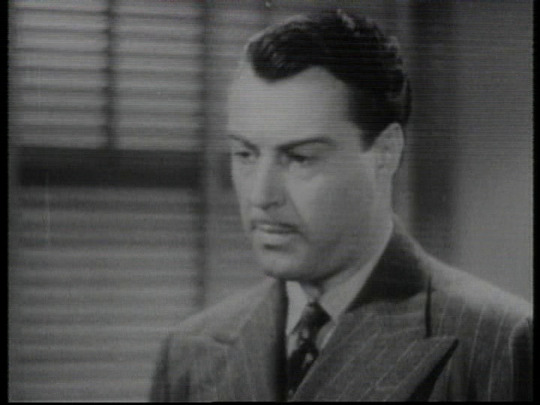
youtube
The Corpse Vanishes (1942)
My rating: 6/10
Kind of fun in its 40s cheesiness, and definitely not one of those that absolutely need the MST3K to make them watchable.
2 notes
·
View notes
Photo
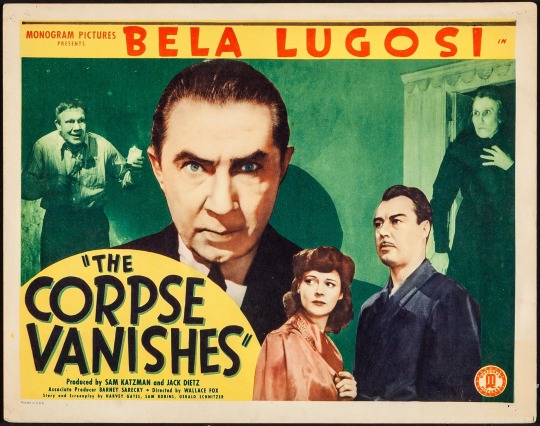
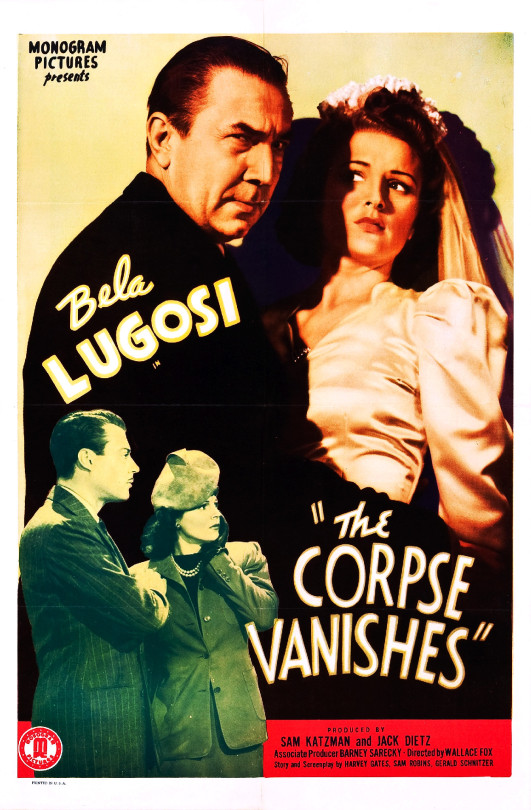
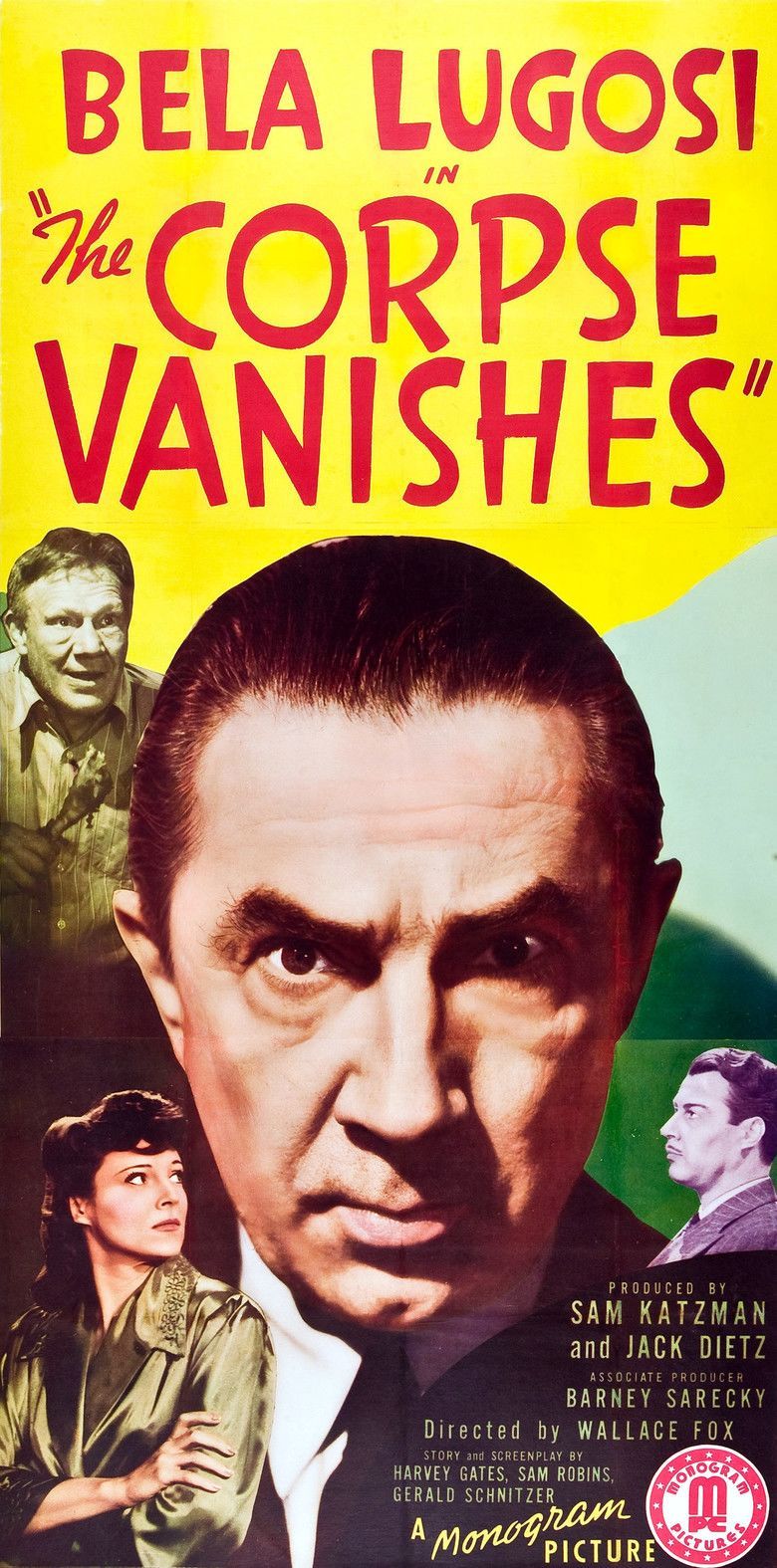
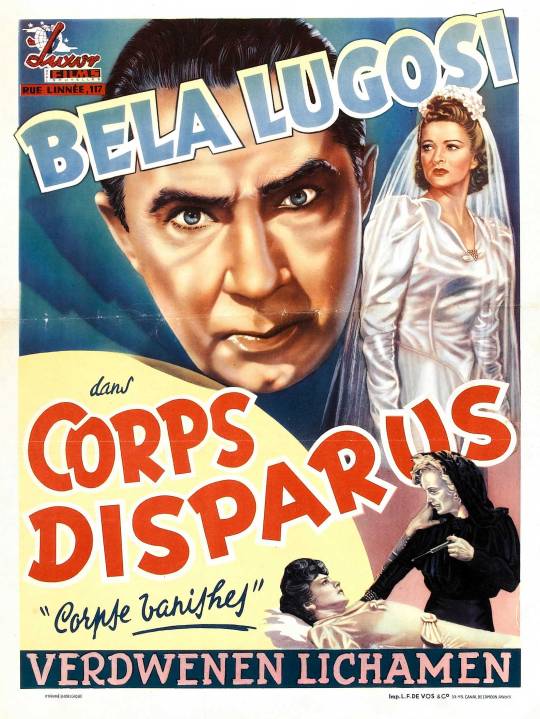
The Corpse Vanishes (The Case of the Missing Brides) (1942) Wallace Fox
March 13th 2020
#the corpse vanishes#the case of the missing brides#1942#wallace fox#bela lugosi#luana walters#tristram coffin#elizabeth russell#angelo rossitto#kenneth harlan#frank moran#minerva urecal#vince barnett
4 notes
·
View notes